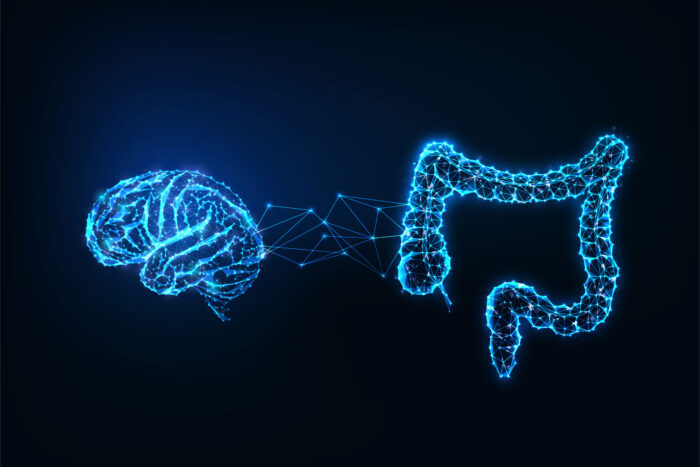In the realm of health and wellness, there’s a remarkable connection between the gut and the brain that has been gaining increasing attention. Often referred to as the “second brain,” the gut plays a pivotal role in not only our digestive processes but also in influencing our mood, emotions, and overall well-being. This intricate interplay between the gut and the brain, known as the gut-brain connection, holds the key to better understanding various aspects of our health. In this blog post, we will delve into the depths of this fascinating connection, exploring its significance and offering insights into how we can nurture our gut health for improved mental and physical wellness.
The Gut-Brain Connection Unveiled:
At first glance, it might seem peculiar that the gut and the brain are closely intertwined. However, the gut is home to an extensive network of neurons and neurotransmitters, collectively known as the enteric nervous system (ENS). This network enables the gut to function independently and communicate directly with the brain via the vagus nerve. This communication occurs bidirectionally, meaning that not only does the brain influence the gut, but the gut also sends signals that affect the brain.
Key Aspects of the Gut-Brain Connection:
Neurotransmitters and Mood Regulation:
The gut is a significant producer of neurotransmitters, including serotonin, dopamine, and GABA, which are often associated with mood regulation. In fact, about 90% of serotonin, a key player in maintaining a stable mood, is produced in the gut. This sheds light on why digestive issues are frequently accompanied by mood disturbances and vice versa.
Microbiota’s Impact on Mental Health:
The gut is home to a vast community of microorganisms known as the gut microbiota. These tiny inhabitants play a crucial role in various bodily functions, including digestion, immunity, and even mental health. Research suggests that an imbalance in the gut microbiota (dysbiosis) might contribute to conditions like anxiety, depression, and even neurodegenerative disorders.
Stress and Gut Health:
Stress, whether acute or chronic, can significantly impact gut health. The brain’s response to stress can influence gut motility, increase inflammation, and disrupt the delicate balance of the gut microbiota. Conversely, an unhealthy gut can send signals to the brain that contribute to stress and anxiety.
Inflammation and Systemic Effects:
Chronic inflammation in the gut can have far-reaching effects on overall health. Inflammatory compounds produced in the gut can enter the bloodstream and potentially affect the brain, leading to cognitive decline and mood disorders.
Nurturing Your Gut for Better Brain Health:
Given the intimate connection between the gut and the brain, taking steps to promote gut health can have profound effects on your mental and emotional well-being. Here are some strategies to consider:
Diet Matters:
Consume a balanced diet rich in fiber, fruits, vegetables, and whole grains. These foods provide nutrients that support a healthy gut microbiota. Probiotic-rich foods like yogurt, kefir, and sauerkraut can also contribute to a diverse and flourishing gut microbiome.
Manage Stress:
Incorporate stress-reduction techniques into your daily routine, such as meditation, deep breathing, yoga, and mindfulness. Managing stress not only benefits your mental health but also supports a healthier gut.
Stay Hydrated:
Drinking plenty of water is essential for maintaining proper digestion and gut function. Aim for adequate hydration throughout the day.
Regular Exercise:
Engage in regular physical activity, as it can positively impact gut health by promoting healthy gut motility and balanced gut microbiota.
Conclusion:
The gut-brain connection is a captivating example of the intricate ways our body systems interact and influence each other. As research continues to unfold, we gain a deeper understanding of how nurturing our gut health can lead to improved cognitive function, mood stability, and overall well-being. By embracing a holistic approach that addresses both our physical and mental health, we empower ourselves to make informed choices that promote a harmonious gut-brain relationship and pave the way for a healthier, happier life.
